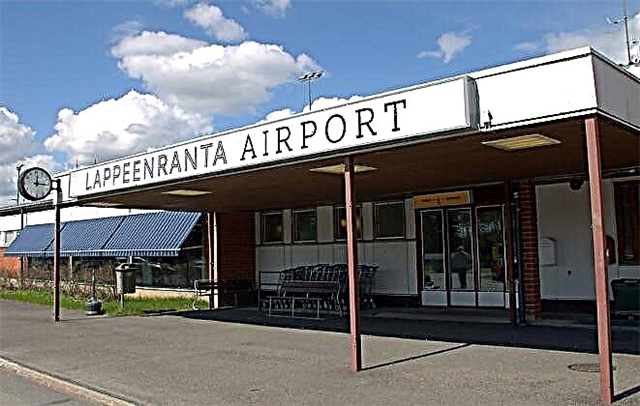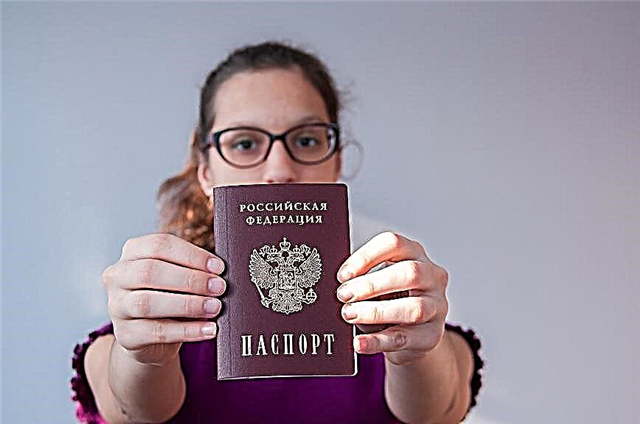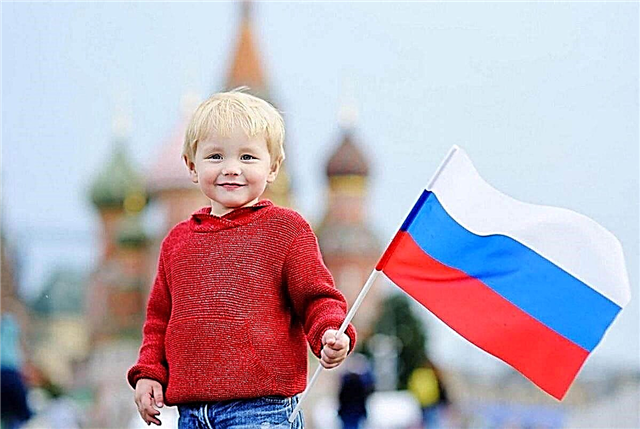Citizenship by birth means that it is issued to a person upon birth. The overwhelming majority of Russians received Russian citizenship due to the fact that their parents were holders of domestic passports. However, sometimes citizenship by birth is also applied to those children whose parents do not have RF passports.
When can you get Russian citizenship by birth?
Citizenship by birth, or filiation, is the classic way of granting citizenship. In this case, it is given automatically and is associated with the fact that a person was born.
In total, there are three variants of filiation, two of which were widespread in Roman law:
- Blood Right (Jus sanguinis) - children acquire citizenship, since their parents are citizens of a particular country;
- Soil Right (Jus soli) - Citizenship is given to all children born in a particular country;
- By inheritance - a rare option when the right to acquire citizenship can be inherited through a generation, if the ancestor at a certain point in time was its owner (Latvia, Romania).
Of the three types of filiation in the Russian Federation, recognition as a citizen by right of blood is the most widespread. The conditions for its registration are governed by Art. 12 of the Law No. 62-FZ "On Citizenship of the Russian Federation" dated May 31, 2012.

A child is automatically recognized as a citizen if both of his parents are holders of internal passports of the Russian Federation. In this case, the place of birth does not matter - childbirth can take place both in Russia and abroad.
Also, filiation applies to newborn children in the following cases:
- The father or mother is citizens, the child is born on the territory of Russia;
- One of the parents is a citizen of the Russian Federation, and the second is stateless, or there is no information about his whereabouts (in this case, the place of birth is of no fundamental importance);
- The child was born on the territory of Russia to foreigners or stateless persons, but according to the laws of the country of origin of the parents, he cannot apply for citizenship;
- The minor is in Russia, while his parents are unknown and did not show up within 6 months.
The last two options are close to filiation by the right of the soil, since the territorial principle becomes paramount. However, the classical soil law does not work in Russia - it is most widespread in the countries of the New World (USA, Canada, Latin American states).
Children born on the territory of these states are granted citizenship on an automatic basis. Many Russians take advantage of this when they go to give birth to the United States or Canada.

According to domestic legislation, giving birth to children on the territory of the country is not enough for acceptance into Russian citizenship. In this case, it is necessary to prove that minors will become stateless, since no country in the world grants them its citizenship. Then the principle of soil law comes into play, and newborns become citizens of the Russian Federation.
You May Also Like
Obtaining Russian citizenship by birth
In the event that the father and mother are citizens of Russia, they rarely think about confirming the citizenship of their child. This statement is also true in a situation where a newborn has only one parent with a Russian passport. In both cases, the newborn's citizenship stamp is automatically affixed to the birth certificate, which will remain the person's main document until he reaches the age of 14. In this case, no action is required to certify the citizenship of the minor.
In the rest of the options, filing is one of the steps necessary for the newborn to be able to fully exercise his or her rights. For example, traveling abroad will require a passport with a mark on the citizenship of the Russian Federation. It will also be needed when registering maternity capital, and sometimes when placing children in a kindergarten, school, etc.
Before 2007 the proof of citizenship was an insert attached to the birth certificate. After that date, the issuance of inserts was canceled, although they did not lose their legal significance. Now the confirmation of the civil status of a minor is a birth certificate.
An alternative document confirming citizenship can be a minor's passport or a parent's passport with a filled-in column on the presence of children.

Registration procedure
To legalize the status of a newborn, you must personally contact the Main Department of Internal Affairs of the Ministry of Internal Affairs of the Russian Federation. Confirmation of the child's status through the MFC or electronically is not yet permitted - only a personal appeal to the body responsible for migration is allowed.
The procedure for confirming citizenship for a minor born in the Russian Federation is as follows. First you need to collect the required documents.
The general package includes:
- Parents' passports;
- Marriage certificate;
- A birth certificate (issued in the maternity ward) or a statement of the participants in childbirth, if they did not take place in the maternity hospital;
- Birth certificate;
- Application in form No. 7 (approved by Decree of the President of the Russian Federation of November 14, 2002 No. 1325).
In some cases, you will have to attach additional documents:
- If the parents are foreigners, then it is necessary to provide a document from the authorized migration authority of their country on the refusal to grant citizenship;
- If the child was born in Russia from an interethnic couple, then it is necessary to provide confirmation of the foreign parent's right of residence (residence permit, temporary residence permit);
- If the father and mother are unknown, then documents from the guardianship authorities, in whose jurisdiction the newborn is currently, are attached, or an application from the adoptive parent (guardian) is provided.
The procedure for registration of citizenship is free - no state duties, additional fees and other payments are charged from the applicant. The processing time is usually no more than 1 business day, but due to the workload of the migration departments, it may be slightly increased.
You May Also Like
Registration in another country
If the parents live abroad, then the citizenship of the newborn is made at the embassy or consulate of the Russian Federation in the host country:
- The application must be accompanied by a foreign birth certificate translated into Russian. You can get it by providing a certificate from the hospital (metric card) to the local municipality. Subsequently, the foreign certificate will become the main document of the minor until he reaches the age 14 years, since it cannot be replaced with a domestic analogue;
- As an alternative measure, you can submit a certificate from the maternity ward (metric card) translated into Russian to the consulate. Subsequently, the parent has the right to apply for a Russian birth certificate;
- After the application is accepted, the data of the newborn is entered into the passport of his father or mother, depending on which of them is a citizen of Russia. Only in this case it becomes possible to bring the newborn into the country legally.
A consular fee is charged for the procedure, so obtaining Russian citizenship abroad costs a significant amount. This is how consular confirmation abroad differs from the procedure carried out within the Russian Federation.
Any documents submitted by the parents of the newborn to the embassy or consulate are affixed with an international apostille.
This mark legalizes foreign documents and serves as the basis for recognizing the child as a citizen of the Russian Federation. To do this, with all the documents received, you need to contact the authorized migration authority, that is, the Main Directorate of Internal Affairs of the Ministry of Internal Affairs of Russia.

Obtaining Russian citizenship by birth is a simple procedure for holders of Russian passports who have given birth to a child within the country. In other cases, the right to acquire Russian citizenship depends on the place of birth, the legal status of the father and mother and the laws of their country of origin.











